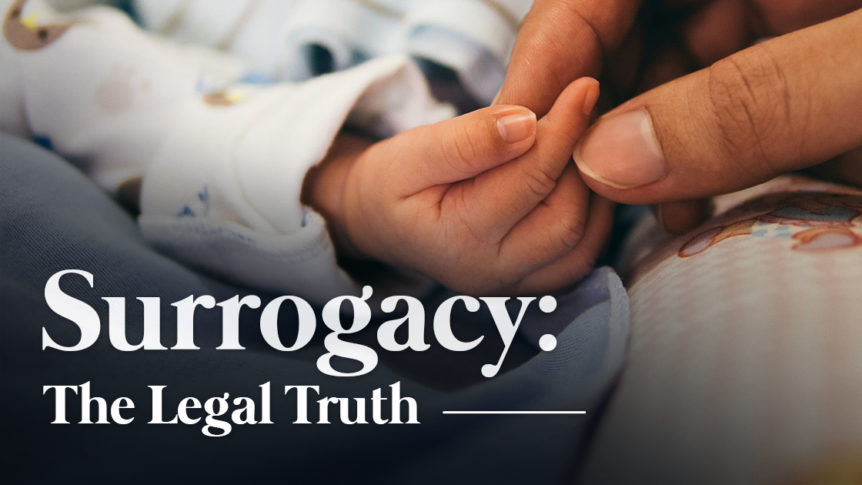Alternatives to traditional reproduction are increasingly spoken about and most people seem to understand the basic concept of surrogacy. Often, there is a common misunderstanding that surrogacy involves commercial agreements whereby women who carry a child for the intended parents, receive a monetary benefit.
In Australia the law governing surrogacy is only recent, coming into effect in 2010. Each Australian state and territory regulates surrogacy so that there is no financial gain for acting as a surrogate outside reimbursement of the surrogate’s reasonable costs incurred associated with the pregnancy. If you are considering surrogacy the reimbursement for reasonable costs must be put in writing prior to the pregnancy. Until recently, intended parents were forced to adopt the child after birth to gain legal parenting rights. The pre-conception agreement now allows intended parents to have the child legally recognised as their own without adoption taking place. In New South Wales intended parents seek a Parentage Order through the New South Wales Supreme Court following the birth of the child. An application for a Parentage Order in relation to a child may be made not less than 30 days and not more than six (6) months after the child’s birth, except in exceptional circumstances. The Parentage Order provides for the intended parents to be recognised as the child’s legal parents and named on the child’s birth certificate.
While available to opposite-sex and same-sex couples, surrogacy agreements are not currently legally binding. Therefore, a surrogate has the legal right to change her mind despite signing the surrogacy agreement.
To be eligible to enter into a surrogacy agreement the intended parents must have attained 18 years of age, and the birth mother must be at least 25 years of age (in New South Wales).
If you think it might be easier to fly overseas for your surrogacy arrangement, think again. You may be punished by fine or imprisonment if you enter into an overseas commercial surrogacy arrangement. The foundation of surrogacy law in Australia is that the agreement is altruistic.
Many fertility clinics who offer surrogacy require the surrogate to be in an ongoing relationship with the intended parents given the amount of trust required throughout the surrogacy process.
Surrogacy is complex, and involves layers of medical, legal and emotional matters. The legal system has sought to assist intended parents and surrogates by enforcing compulsory counselling and independent legal advice before and after the birth. Please ensure you contact a legal professional or family law solicitors before embarking on your surrogacy journey.

